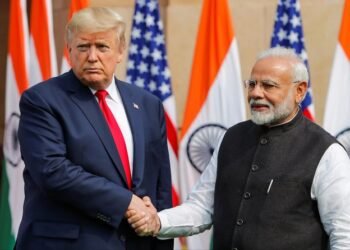Government decides to assign satcom spectrum administratively after Musk opposes to Ambani’s lobbying for auction
The government has decided to assign satellite communication spectrum administratively instead of through auction, which was preferred by Indian billionaires Mukesh Ambani and Sunil Bharti Mittal. The choice was made following Elon Musk’s opposition to Reliance Jio’s lobbying for the auction method, as the CEO of Starlink.
Elon Musk, the wealthiest man in the world, has expressed interest in venturing into the Indian telecommunications industry through Starlink. He has been an outspoken critic of the auction method favored by Mukesh Ambani, the wealthiest man in Asia.
Starlink and other global firms endorse regulatory assignment of spectrum
Starlink, as well as other multinational firms such as Amazon’s Project Kuiper, endorse the regulatory assignment of spectrum, which is consistent with worldwide norms. Musk pointed out that the ITU, a UN organization that India belongs to, classifies satellite spectrum as shared, therefore, it should not be put up for auction.
Musk had expressed doubts about the need for an auction in India. On Monday, Musk commented on Reliance Jio challenging the administrative allocation of spectrum, stating that holding an auction would be “unprecedented”.

Replying to another X post on the spectrum issue on Tuesday, Musk took a dig over the matter and said, “I will call and ask if it would not take much trouble to allow Starlink to compete to provide internet services to the people of India.”
Reliance Jio calls for auction to ensure fair competition
Alternatively, Reliance Jio, owned by Ambani, has been advocating for the satellite spectrum auction to create a fair competition among telecom companies. Reliance has maintained that companies utilizing satellite spectrum should be subjected to the identical competitive bidding procedure as terrestrial services.
Reliance Jio recently wrote to the Telecom Regulatory Authority of India (TRAI), asking for a review of its consultation paper supporting administrative allocation. It urged the government to rethink its decision, maintaining that an auction is the sole method to guarantee fair competition.

Also read: SpaceX Polaris Dawn Astronaut Jared Isaacman completes world’s first private spacewalk
Reliance Jio stated to Reuters on Sunday that they have asked TRAI to change the consultation paper to guarantee fair competition, stressing the need for TRAI to also seek input on spectrum assignment methods.
At a recent event, Sunil Mittal, the leader of Bharti Airtel, expressed his approval of an auction, stating that satellite companies serving urban and retail markets must follow the same licensing regulations as telecom companies. Mittal emphasized the importance of acquiring the spectrum like telecom companies to ensure a consistent policy throughout the sector.
However, Telecom Minister Jyotiraditya Scindia announced that India will follow the global trend of administrative spectrum allocation. “Satellite spectrum across the world is allocated administratively. So, India is not doing anything different from the rest of the world,” he said.
Scindia promised that although the distribution would be handled administratively, the pricing would be decided by TRAI to guarantee fairness. Scindia stated that the constitution has given the telecom regulatory authority the power to determine administrative pricing.














